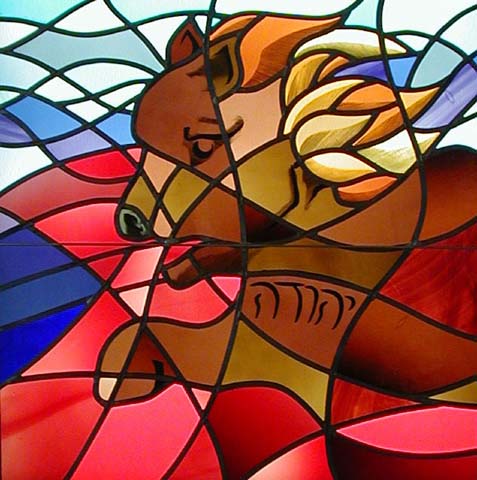 Rabbi David Etengoff Dedicated to the sacred memories of my mother, Miriam Tovah bat Aharon HaKohane, father-in-law, Levi ben Yitzhak, sister, Shulamit bat Menachem, sister-in-law, Ruchama Rivka Sondra bat Yechiel, Chana bat Shmuel, Yehonatan Binyamin ben Mordechai Meir Halevi, Tikvah bat Rivka Perel, Gittel Malka bat Moshe, Alexander Leib ben Benyamin Yosef, the Kedoshim of Har Nof, Pittsburgh, and Jersey City, the refuah shlaimah of Mordechai HaLevi ben Miriam Tovah, and the health and safety of our brothers and sisters in Israel and around the world. The events in Parashat Vayigash represent a crucial moment in the history of the entire Jewish people. It begins with the celebrated phrase, “vayigash aluv Yehudah—And Yehudah drew near unto him.” (Sefer Bereishit 44:18) These words initiate the celebrated dialogue between Yehudah and Yosef, the latter in the guise of Mishneh l’Melech (second-in-command of Egypt). A careful reading of the subsequent pasukim leads us to ask why the other brothers did not participate in this discussion, especially in light of its singular import. This point was addressed by our Sages in Midrash Bereishit Rabbah: “They said [the other brothers to one another]: ‘Kings are steeped in controversy and debating one another, therefore, what relevance does it have for us? Let the king contend with the king!’” (Vilna edition, 93:2, translation my own) In his posthumous work, Chumash Mesoras HaRav, my rebbe and mentor, Rabbi Joseph B. Soloveitchik zatzal (1903-1993), known as the “Rav” by his followers and disciples, analyzes this statement in the following manner: Intuitively, they [the brothers] felt that the controversy transcended the issue of their young brother Benjamin; it involved Jewish historical destiny. Who should be king over Israel, Joseph or Judah? From whom will the King Messiah descend, Joseph or Judah? Joseph wanted to be king, to combine political and economic power with spiritual leadership. He dreamt of sheaths, and he also dreamt of stars. Judah did not dream, yet there was something in his personality which commanded respect and obedience… It was he who had a powerful personality which radiated authority. Judah was a lion. (Page 328, brackets my own) In sum, while on the surface, the disputation between Yosef and Yehudah centered on Benyamin’s future, in reality, Jewish historical destiny was at stake: From whom would the future kings of klal Yisrael descend, and from which shavet would mashiach ultimately come? As the Tanach attests, Hashem decided in favor of Yehudah, the lion, rather than Yosef HaTzaddik, the spiritual dreamer. Midrash Tanchuma on Parashat Vayera (Siman 8) offers a very different approach to understanding the phrase, “vayigash aluv Yehudah.” It suggests when the Hebrew letters that comprise vayigash are vocalized in this manner, it refers to the act of prayer: “v’ain vayigash elah tefilah—there is no use of the term ‘vayigash’ that does not refer to prayer.” As such, vayigash aluv Yehudah refers to Yehudah praying to the Holy One blessed be He for guidance in his upcoming confrontation with Yosef; that is, “aluv,” refers to Hashem rather than to Yosef. The midrash cites two additional examples in Tanach that strongly support the idea of vayigash referring to tefilah: And Avraham approached and said--vayigash Avraham vayomar, “Will You even destroy the righteous with the wicked?” (Sefer Bereishit 18:23) And it was when the evening sacrifice was offered that Elijah the prophet came near and said--va’yehi b’a’lot hamincha vayigash Eliyahu hanvi vayomar, “Hashem, the G-d of Avraham, Yitzchak and Yisrael, today let it be known that You are G-d in Israel and that I am Your servant, and at Your word have I done all these things.” (Sefer Melachim I:18:36, these and the following translation, The Judaica Press Complete Tanach) In my estimation, this interpretation of vayigash aluv Yehudah teaches a fundamental lesson regarding the very essence of tefilah: In its ideal form, prayer stems from an overwhelming desire to draw near to the Almighty, to encounter Him and bask in the light of His holy presence. For when we do, Hashem draws close to us, as well. As we find in the uplifting words of Ashrei: “Karov Hashem l’kol koruv, l’kol asher yikrau’hu b’emet—Hashem is near to all who call Him, to all who call Him with sincerity.” (Sefer Tehillim 145:18) V’chane yihi ratzon. Shabbat Shalom Past drashot may be found at my blog-website: http://reparashathashavuah.org. Please contact me at [email protected] to be added to my weekly email list. *** My audio shiurim on the topics of Tefilah and Tanach may be found at: http://tinyurl.com/8hsdpyd *** I have posted 164 of Rabbi Soloveitchik’s English language audio shiurim (MP3 format) spanning the years 1958-1984. Please click on the highlighted link: The Rav
0 Comments
Leave a Reply. |
Details
Archives
July 2024
AuthorTalmid of Rabbi Soloveitchik zatzal Categories |
- Blog: Rabbi David Etengoff: Parashat HaShavuah
- Sefer Bereishit 5784&5785
- Sefer Shemot 5784&5785
- Sefer Vayikra 5784&5785
- Sefer Bamidbar 5784 &5785
- Sefer Bereishit 5782&5783
- Sefer Shemot 5782&5783
- Sefer Vayikra 5782&5783
- Sefer Bamidbar 5782&5783
- Sefer Devarim 5782&5783
- Sefer Bereishit 5780& 5781
- Sefer Shemot 5780&5781
- Sefer Vayikra 5780&5781
- Sefer Bamidbar 578&5781
- Sefer Devarim 578&5781
- Sefer Bereishit 5778&5779
- Sefer Shemot 5778&5779
- Sefer Vayikra 5778&5779
- Sefer Bamidbar 5778&5779
- Sefer Devarim 5778&5779
- Sefer Bereishit 5776&5777
- Sefer Bereishit 5774&5775
- Sefer Bereishit 5772&5773
- Sefer Bereishit 5771&5770
- Sefer Shemot 5776&5777
- Sefer Shemot 5774&5775
- Sefer Shemot 5772&5773
- Sefer Shemot 5771&5770
- Sefer Vayikra 5776&5777
- Sefer Vayikra 5774&5775
- Sefer Vayikra 5772&5773
- Sefer Vayikra 5771&5770
- Sefer Bamidbar 5776&5777
- Sefer Bamidbar 5774&5775
- Sefer Bamidbar 5772&5773
- Sefer Bamidbar 5771&5770
- Sefer Devarim 5776&5777
- Sefer Devarim 5774&5775
- Sefer Devarim 5772&5773
- Sefer Devarim 5771&5770
 RSS Feed
RSS Feed
